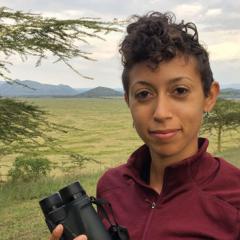Christine Wilkinson selected as 2022 Schmidt Science Fellow
Editor's note: this content was originally published on the Schmidt Science Fellows website.
On June 9, Eric and Wendy Schmidt announced the 2022 cohort of Schmidt Science Fellows. The 29 new Fellows are a group of exceptional early-career scientists from around the world, each committed to transcending disciplines to advance discovery and driving innovation that improves the quality of life for all.
Schmidt Science Fellows is the inaugural Program of Schmidt Futures, the philanthropic initiative of Eric and Wendy Schmidt. Now marking its fifth anniversary, Schmidt Science Fellows exemplifies Schmidt Futures’ mission by bringing the brightest minds together to solve society’s toughest challenges and now has 113 active and alumni Fellows representing 30 nationalities of origin. Fellows from the first cohorts are already pursuing faculty roles in renowned universities, leading start-up companies, and influencing policy.
Schmidt Science Fellows, delivered in partnership with the Rhodes Trust, envisions a world where interdisciplinary science can flourish and accelerate discoveries that tackle major challenges and have a positive impact on the world. Each Fellow is supported for one to two years with up to $200,000 in stipend, individualized mentoring, and a series of professional development sessions around the world, to pursue research at a disciplinary pivot to their PhD and maximize their potential as future scientific leaders. Among the 2022 Fellows are scientists aiming to develop new therapies to treat cancer and heart disease, scale-up sustainable fuel production, restore vision for blind people, protect endangered species, generate new approaches for clean water and energy, and more.
Switzer Fellow Christine Wilkinson is one of the 29 awardees, and plans to use the opportunity to pivot from ecology to computer science. Christine’s PhD research explored methods of incorporating multidisciplinary mapping with carnivore ecology and behavior, land use, and human activity to inform conservation strategies. As a Schmidt Fellow, she now plans to use machine learning methods to understand shared socioecological drivers of human health, wildlife health, and connectivity in urban spaces.
Learn more about the Schmidt Science Fellows here.
